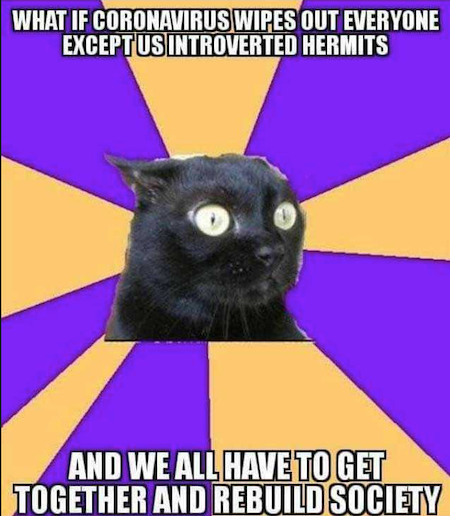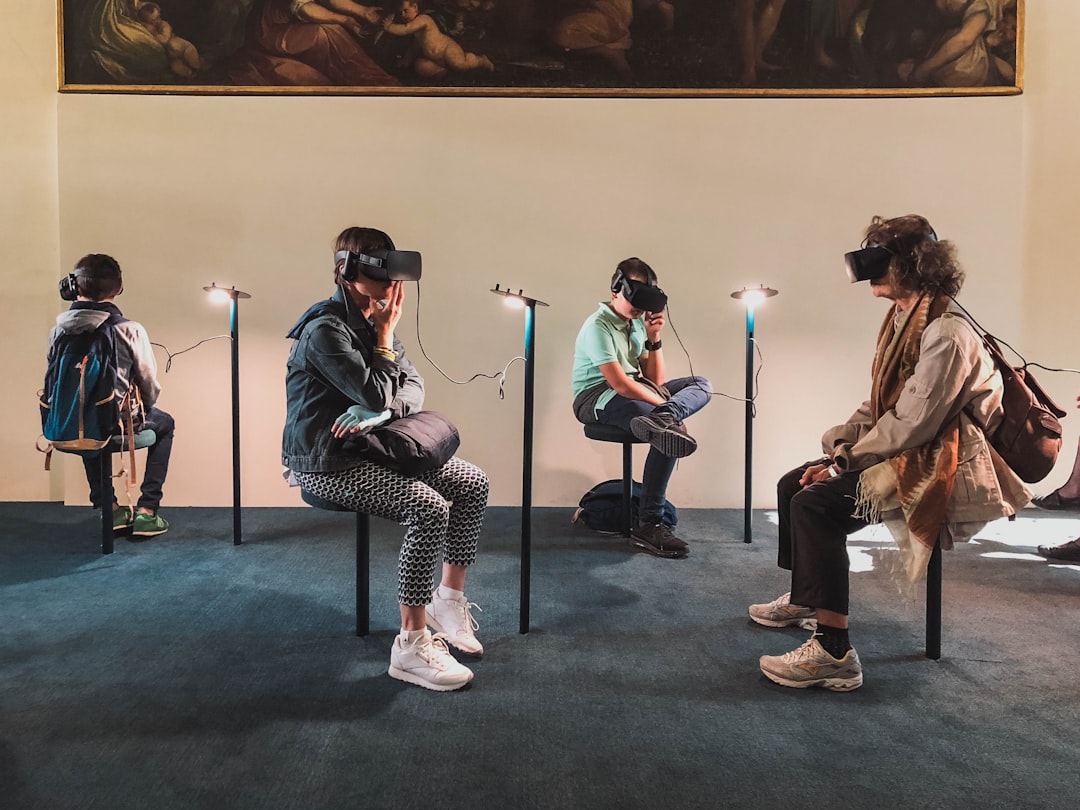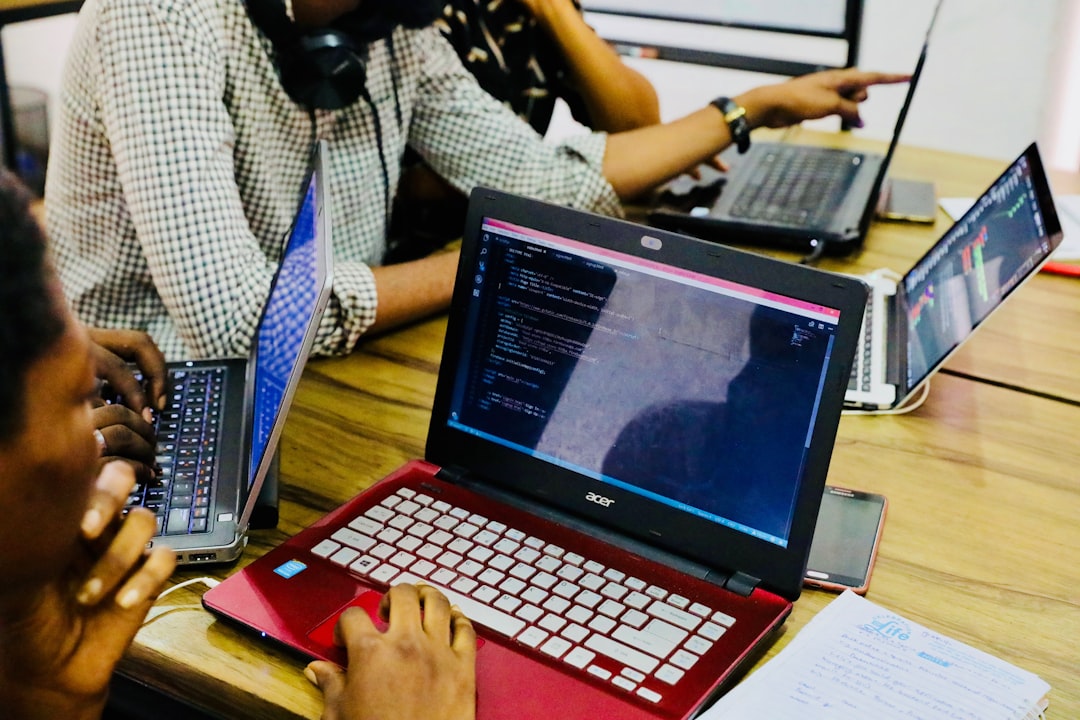Entering to the no-office mode - the new environment for modern startup work?
Vesku Grönfors
Co-Founder
November 5, 2020 • 10 min read
*This week I received a proposal from the city of Helsinki to shoot video at Aito.ai office. They want to get the fresh material from the coolest startups in the city who represent the most modern work environment. Also the Junction hackathon we are partnering with asked if they can go to our premises to get some footage.
This week is also the first day for Aito team without a physical office.*

We are defining the new normal for our team at the same moment with laying the foundations of our identity. Our main goal right now as a startup is to validate the product-market fit. Due to COVID 2nd wave, our environment is uncertain, insecure, and thus our team is again challenged to find new ways of working.
After the crisis started, we have been experiencing the full range of feelings with remote work. We have been utterly confused, but also have had a honeymoon of a productivity boost. The most relevant finding is that listen to your teammates during the crisis and be genuinely interested in each other. That enables efficient decision making despite the tough times.

This story is a summary of remote work learnings, with the eyes of a technology startup based in Finland. I might not end up with scientifically correct conclusions, but I am convinced the courage and agility of our kind of companies can challenge the prevailing models of work environments. Our experimentations can lead to more humane working cultures.
Building up our identity
We were 11 people, and we had just moved to our first own office from our Futurice nest where we were born and spun out. We had learned that Robotic Process Automation was the priority domain where we will validate our product-market fit. Also, just a few months before we got an international VC to back us up.
The team had the level of trust and spirit of collaboration that I had not seen in my 20-year career. At the same time, we knew we needed to be even more productive and efficient than before, especially in front of the customers. It was time to meet the hordes of people and make it happen. We were boosted like teenagers getting a grip of their identity.

We stopped seeing people face to face and went remote on March 11th. The team decision was fast, and it happened before the Finnish Government set their recommendations.
We had never brainstormed, workshopped or defined our values explicitly. But at that moment having public and private discussions with all the team members, it was clear that we do want to live with these principles. Trust and empower your teammates. Make sure also we can take more people in the spirit of “trust is given not earned”. Focus your energy and passion for the outcomes. Create an environment where the location, the time and the tools do not restrict you. Rules suck.
Dazed and confused by COVID?
We created fast several business scenarios to prepare for the crisis, in collaboration with the board and the team. We were ready for a confusing time where people need to be put first. It was essential for us to create a sense of security so that no-one needed to be afraid of losing their job in a challenging situation. We agreed there would not be lay-offs or furloughs during the “COVID-summer”.
Still, I was preparing for a shitshow from a leadership, financial, people and uncertainty point of view. There was no benchmark for this kind of situation in leadership literature.
A detail from that time. I had just signed a contract to get a Framery meeting booth for our new office. Spot on investment. For normal times. In the crisis time? The most stupid decision. A slight frustration was tangible.
We also set up practices very fast to operate entirely online. We continued daily standups as well as other meetings and practices. In Slack, in shared documents, Trello, Google Meet etc. Part of us was dragging office tables and stuff to tune their Battlestations at home. Part also was seizing the opportunity of taking the toilet papers from the office.
We were able to shift to remote work. All happened lightning-fast, and on the next day, we were set with a new kind of normal. Our team consists mostly of intro- and ambiverts, very talented people who can adjust themselves for the team and within the situation. We are not all hard-boiled startup experts, but we have the fundamental value of doing what it takes.
First days were not bringing major setbacks or curveballs. Even though the world around us was quite confusing, inside the team, there was never a feeling of panic. It was many times repeated from many mouths that we are in a lucky situation. Keep calm and keep on coding.
The honeymoon
The honeymoon of intro and ambiverts started. We were more efficient and productive than before. The feeling of a Flow was commonly the state of mind in a peaceful working environment. Well, not always at the lockdown homes of the teammates with families. Most of the kids of our families are from toddlers to teenagers. And quite active and loud they are indeed. But on the work laptops, Slack was busy beeping, and the product backlog items started to be finished faster than ever.
We also managed to keep the work-life balance. Based on some random updates sent to our Slack that also meant an opportunity to play some more games! What a bliss!

Top 5 key takeaways of the honeymoon of the remote work
- Face the crisis and uncertainty together. It boosts the focus and effort. We allowed ourselves to channel our thoughts and frustrations. That was bringing a feeling of security of not being alone.
- Give space to people to use more time and freedom of their ways of working. It might feel that part of control is lost, but it increases efficiency.
- Plan with inclusiveness and with scenarios. It helps to stabilise the uncertainty and focus on actual work. We were able to predict the next months. The past 6-month financial planning accuracy has been >90%.
- Bond in a natural way. Social connections are must, but they are motivating and have proved to work best when the team initiates them. Top-down “being social for the sake of being social” meetings pushed to the calendar are quite awful.
- Refresh the minds with office dog, karaoke moments, bad jokes, web liero, whatever you feel energising.
I will not go to listing all the findings; the market is full of remote working tips. This Google guide is a good one if interested to find more.
Twisted times
First symptoms started to develop when we realised we had lost most of the genuine social contacts and everyday ad hoc casual situations. The spiral of self-isolation began with small things. Or better said, missing the small daily social actions. Not telling a colleague a joke prevented the dialogue from starting, which could end up solving some machine learning bugs. We found out that the barrier to take the phone and make a call is surprisingly high if there is no clear and high importance question. Humour had been our way to open the conversations many times, and most of the team highlighted its high importance as a step to enter on talks about hard substance stuff.
First, the routine work was impacted, ending up done in silos. People started making assumptions on the timelines, who to involve, ways of workings, tools, work amounts etc. Sometimes people did not even realise if someone needed help: the ability and superpower we had always had before. Efficiency turned out to be seemingly efficient.

The sales and contacting our customers were also struggling. Our sales plans were relatively straightforward. But the rest of the world, especially larger enterprises, were challenged with their uncertain and changing policies. We felt fortunate since the direct impact on us was minor, and at the same time, we felt empathy for the experiences of the customers. It felt that the market was taking time out and tried to breathe. And we wanted to move further faster.
On the product development side, the prepared readymade backlog with routine tasks was easy to execute. The hard part to put the brains together to come up with the great new ideas and optimal ways to run them. Some of the people started to place very high expectations for themselves, giving much unproductive pressure. The missing social element was leading to unproductiveness and losing the capability of out-of-the-box thinking after the honeymoon of productivity.
The office
San Francisco-based Salesforce has joined the ranks of top technology companies, such as Google, Facebook, Spotify, Slack, Shopify, PayPal and Uber, that have similarly informed their respective employees on the new normal. They can either continue working from home through the end of the year or up until the summer of 2021. Some companies, including Twitter, Square and Zillow, have made it clear that their people could work remotely for as long as they’d like.
Summary of the current atmosphere in the company cultures:
- Companies are preparing that most of 2021 will be remote, i.e. around six months after there is vaccination the people can access the offices.
- Significant investments are made to seating arrangements, hygiene and air conditioning.
- Even after signalling safe office space, one part of the employees will stay at home, another part will split remote/home, and another part will be eager to maximise the time spent at the office.
How to create a flexible office environment and dynamic workplace? Which principles can also be used around the world, around the cultures? Not a small investment nor a slam dunk from a planning perspective. Even for our size of a company.
What would be the principles for our office environment? Since the open space layout has been proved to increase the feeling of fellowship and tight community, it is the typical starting point. But even without the COVID, the risks to go wrong in newly designed workplaces are at least as probable as they were with the old ones. Take the hot-desking, for example. It has proven actually to decrease the feeling of fellowship and trust. We should not just try to fit what others have been thinking would work for them.
Our office selection would not only be selected optimising the COVID period. It will definitely not be how I remember the Microsoft Redmond old office building interiors. I am sure by today they have renewed them, but I got an immediate allergy for the “prison cells” which isolated every person to have their own cubic, with walls and doors, like a human honeycomb. Lucky were those who were on the outer rim of the building and had windows. That can be one way to block the virus from spreading. But it also blocks the most important, the human element.

We are not able to be particular about our needs, yet. Therefore we join this massive worldwide experimentation in the spirit of agility and braveness to do things differently if that is what it takes.
Homeless people defining our identity
What makes a home for a person or a team? After having lived many years in foreign countries in Europe, Middle-East and Asia, I do not think that the apartment creates the feeling of a home. Home is formed by the people and the ambience of the environment surrounding me. With the dynamics of everyday life or life on special occasions. The ability to relax and recharge; the feel of security; the familiarity; and where you can be freely yourself.
The same goes for the office; it should not only be a building and location. The team(s) using it will make it a special place. The people and social dynamics inside. And the atmosphere around it. That entity is a physical frame, which steers our culture and ways of working.
As it’s best, it can be an essential part of the team. It can project the evolution stages of us as it has done for us so far.
- Three Founders starting in the corner office of the mother company - the birth?
- The tiny team having its own office space with our brand neon light visible, with a great bonus of having an own meeting room. - the toddler?
- Sharing an office with two other startups. First time out from the mother company premises - the teenage years?
The team made a brave decision to go to a no-office mode, where no-one of us has worked before. That reflects the stage of us and the stage of the world. We did not find a place which feels good, which fits for us. In the times we rarely even visit the office, or when we are, there are no other teammates there.
The building blocks for experimentation
Now is the perfect time to do some experimentation. Our journey continues towards asynchronous communication. And in the long run, we will make the distributed teams work.

We do not know what defines home for us, yet. But we have started to identify the building blocks how we want to grow (up):
- We build an identity which holds together even with distributed teams. Where all the people will make an impact on it.
- We can be genuinely ourselves at work with all our characteristics and ambitions. In the same way, the work fits the rest of our life. We do not need to be schizophrenic to split totally the work-life, but for sure we can balance our needs.
- Office hours are for old-timers, we want a dynamic place which is planned for people to go in and out as they wish. Building on top of the earlier point, we will master asynchronous communication.
- We will improve the “virtual office space” feel. We have ramped up fast the online office, and we continuously find new ways to improve it by finding the right tools and methods. Adapting to slacks, meets and Among Us are just the beginning.
- A healthy environment is a must - ergonomy of the mind and the body.
- Watch out and avoid creating an execution environment which would lower the creativity or prevent out-of-the-box thinking with other people. Create a diverse habitat for collaboration. Invest in places and times for debates and chitchats.
- Do not ever forget to have fun in a way that has nothing to do with our daily tasks!
This is just a start
All of the above boil down to the condensed sauce of experimentation, learning and identifying the right environmental design for us. Our core identity should define the environment around us. The office space is to support the selection of the culture we want to express. Just a random rarely used office should not force us to impact negatively on our identity.
Or maybe there will never be a permanent physical office again.
We feel fortunate to be in this challenging situation in the location we are, with the team around us, with the mindset that we have. And at the same time, we can take the situation as an opportunity to spread the joy of machine learning and digitalisation. We know the actual company culture will be built later, but we acknowledge that the seeds for the identity are created all the time, especially at the early stages.
For all the brave startup teams of the world, good luck! One day we will beat this bloody virus.
This writing is partly inspired by the lonely physical Framery booth, which was the poorest investment of the Aito history. Phonebooth sitting alone in the empty office. The office we barely used.

Address
Episto Oy
Putouskuja 6 a 2
01600 Vantaa
Finland
VAT ID FI34337429